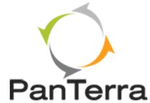Description

Dialfire

Xarios
Comprehensive Overview: Dialfire vs Xarios
Dialfire and Xarios are distinct technology platforms with different primary functions, target markets, and features. Below is an overview of each:
Dialfire
a) Primary Functions and Target Markets:
-
Primary Functions: Dialfire is a cloud-based call center software solution. It provides features such as predictive dialing, automatic call distribution, interactive voice response (IVR), call recording, and real-time analytics. It is designed to enhance customer communication, automate outbound call campaigns, and improve the efficiency of call center operations.
-
Target Markets: Dialfire primarily targets small to medium-sized enterprises (SMEs) and larger businesses that require scalable and flexible call center solutions. This includes industries such as telemarketing, customer support, debt collection, and any business requiring extensive outbound calling capabilities.
b) Market Share and User Base:
-
Dialfire operates in a competitive market with many established call center software solutions. While specific market share data is not always publicly available, Dialfire is known for its feature-rich offerings at a competitive price point, appealing particularly to SMEs looking for cost-effective options.
-
The user base consists of a range of companies that require efficient outbound and inbound call handling, including those in the aforementioned sectors.
c) Key Differentiating Factors:
-
Flexibility and Customization: Dialfire offers a high degree of flexibility and customization options for users to tailor the platform to their specific business needs.
-
Cost-Effectiveness: Competes strongly on pricing, often being more affordable than some larger providers while still offering a comprehensive set of features.
-
Ease of Use: Known for a user-friendly interface which allows for quick setup and deployment without extensive technical expertise.
Xarios
a) Primary Functions and Target Markets:
-
Primary Functions: Xarios is known for its advanced call analytics and telephony integration solutions, particularly for systems like Mitel. It provides products that enhance unified communications through performance analytics, call recording, and integration capabilities.
-
Target Markets: Xarios primarily caters to businesses that utilize Mitel phone systems and need enhanced analytic functionalities and integration for unified communications platforms. This includes industries ranging from finance and healthcare to general enterprises that require detailed insight into their communication systems.
b) Market Share and User Base:
-
Xarios holds a niche position within the call analytics sector, particularly for businesses that rely on Mitel systems. It is well-regarded in its niche, although not as broadly known as some larger UC analytics providers.
-
Its user base mainly comprises enterprises and organizations that prioritize detailed call reporting and require robust integration with existing telephony systems.
c) Key Differentiating Factors:
-
Integration with Mitel: Offers deep integration specifically designed for Mitel platforms, providing seamless user experiences and detailed insights tailored for those systems.
-
Advanced Analytics: Delivers extensive analytics capabilities including live call statistics, historical reporting, and integration into business intelligence tools, giving users powerful insights into communication performance.
-
Specialized Solutions: Focus on specific telephony systems means that it provides specialized and refined solutions tailored to the needs of users within its niche market.
Overall Comparison
While both Dialfire and Xarios operate within the broad realm of communication technologies, they serve different primary functions and target distinct markets. Dialfire is more focused on providing versatile call center operations, whereas Xarios specializes in call analytics and telephony integration, particularly for Mitel users. The choice between these two products would largely depend on a business's specific needs—be it call center operations versus enhanced telephony analytics and integration.
Contact Info

Year founded :
Not Available
Not Available
Not Available
Not Available
Not Available

Year founded :
Not Available
Not Available
Not Available
Not Available
Not Available
Feature Similarity Breakdown: Dialfire, Xarios
Dialfire and Xarios are both communication and call center software solutions, but they cater to slightly different needs within that realm. Here's a breakdown of their feature similarities, user interface comparisons, and unique features:
a) Core Features in Common
- Call Management: Both platforms offer comprehensive call management features, allowing businesses to handle incoming and outgoing calls efficiently.
- Automation: They provide automation tools to streamline call processes, reduce manual workload, and increase efficiency. This can include automated dialing and call routing.
- Analytics and Reporting: Both solutions provide analytics and reporting tools to help businesses track performance metrics, monitor call activities, and optimize operations.
- Integration Capabilities: They can integrate with other CRM and business tools, ensuring seamless data flow and improved customer management.
- Scalability: Both platforms are designed to scale with the business, supporting small teams as well as larger call center operations.
- Compliance: They offer features that help ensure compliance with industry regulations regarding communication and data privacy.
b) User Interface Comparison
- Dialfire: Dialfire is known for its user-friendly interface, which is particularly designed to be intuitive and easy to navigate. It provides a straightforward dashboard for managing calls and monitoring performance, with drag-and-drop features and customizable layouts that allow users to tailor the interface to their preferences.
- Xarios: Xarios typically caters to more complex environments and offers a robust user interface that may appear more technical due to its enterprise-grade capabilities. The interface is feature-rich, offering detailed insights and extensive customization options. It requires a bit of learning curve for new users compared to Dialfire but offers more in-depth control for advanced users.
c) Unique Features
-
Dialfire:
- Rapid Deployment: Dialfire is particularly noted for its ease of setup and rapid deployment, which makes it appealing to businesses that need to get up and running quickly without extensive IT intervention.
- Dynamic Call Flows: Offers flexibility to create dynamic call flows which can be easily adjusted to meet changing business needs.
-
Xarios:
- Advanced Call Analytics: Xarios tends to offer more advanced analytics features, with in-depth reporting capabilities that provide richer insights into call patterns and agent performance.
- Unified Communications Features: Xarios generally provides advanced unified communication features, bringing together voice, video, and chat in one platform for efficiency.
- Customizable Dashboards and Widgets: It allows users to create highly personalized dashboards with widgets that suit specific business needs.
In conclusion, while both Dialfire and Xarios offer strong call management features essential for communication solutions, Dialfire stands out for its simplicity and ease of use, whereas Xarios offers more advanced analytics and unified communications features tailored to more complex environments. The choice between the two will largely depend on the specific needs of a business, their scale, and the complexity of their operations.
Features

Not Available

User-friendly Interfaces
Powerful Analytics
Seamless Integrations
Best Fit Use Cases: Dialfire, Xarios
Dialfire and Xarios are two different software solutions that cater to specific needs within communication and customer engagement spaces. Here’s how each can be utilized based on their strengths:
Dialfire
a) For what types of businesses or projects is Dialfire the best choice?
Dialfire is primarily designed for businesses that require flexible and scalable outbound call center solutions. It is especially advantageous for:
-
Telemarketing Campaigns: Companies engaged in outbound sales and telemarketing can benefit significantly from Dialfire’s capabilities, given its comprehensive contact management and dialer system.
-
Customer Surveys and Market Research: Businesses and research companies conducting large-scale surveys or market research can leverage Dialfire’s ability to handle large volumes of calls efficiently.
-
Political Campaigns: Political and advocacy groups can use Dialfire to reach potential voters or supporters, ensuring quick and effective communication.
-
Debt Collection Agencies: For operations needing to coordinate high-volume outbound calling, Dialfire offers tools tailored to handle sensitive data and vast contact lists.
d) Industry Verticals or Company Sizes:
- Industry Verticals: Ideal for industries like finance, health care, insurance, research, marketing, and political campaigning.
- Company Sizes: Both small-to-medium-sized businesses and large enterprises can benefit, especially those seeking cost-effective outbound call center solutions. Its scalability makes it suitable for growing businesses with changing demands.
Xarios
b) In what scenarios would Xarios be the preferred option?
Xarios focuses on delivering real-time communication tools and analytics, making it well-suited for:
-
Inbound Call Centers: Xarios excels in providing enhanced call management and reporting tools, making it suitable for customer support and service departments.
-
Unified Communications Solutions: Businesses seeking integration of voice, video, and messaging into a coherent unified communications platform would find Xarios beneficial.
-
Workforce Optimization: Companies that need to optimize their workforce’s efficiency in handling communications through detailed analytics and insights.
-
Quality Assurance and Training: Xarios provides tools for call recording and monitoring, which can be crucial for training, quality assurance, and compliance in customer service operations.
d) Industry Verticals or Company Sizes:
- Industry Verticals: Suitable for industries like telecommunications, customer service sectors, e-commerce, healthcare, hospitality, and any industry focused on inbound call handling and customer interactions.
- Company Sizes: Generally, mid-size to large enterprises that require robust communication management and analytics to enhance customer experience and operational efficiency.
Summary
While Dialfire excels in scenarios requiring extensive outbound call management and efficiency, especially for smaller setups seeking scalability, Xarios provides comprehensive tools for managing inbound communications and optimizing workforce performance. Both cater to different industry needs and company sizes with Dialfire focusing more on outreach and Xarios on in-depth communication solutions and analytics.
Pricing

Pricing Not Available

Pricing Not Available
Metrics History
Metrics History
Comparing undefined across companies
Conclusion & Final Verdict: Dialfire vs Xarios
When evaluating Dialfire and Xarios, it's important to consider their features, pricing, scalability, user experience, and specific business needs. Here's a comprehensive conclusion and final verdict:
Conclusion
After comparing Dialfire and Xarios, it is evident that both products offer distinct advantages tailored to different operational requirements. Dialfire excels in flexibility and customization, making it a preferred choice for businesses seeking a highly adaptable cloud-based dialer solution. Xarios, on the other hand, stands out in seamless integration with telephone systems and offers robust analytics, catering more to environments with established telephony infrastructure.
Best Overall Value
Dialfire generally offers the best overall value for small to medium-sized businesses looking for flexible, cloud-based dialer solutions. It provides significant customization capabilities, ease of use, and scalability, all of which contribute to cost-effective telemarketing and customer engagement processes.
Pros and Cons
Dialfire
Pros:
- Flexibility: Highly customizable workflows, allowing personalized campaign setups.
- Scalability: Easily scalable with no significant infrastructure investments.
- User-Friendly: Intuitive interface that requires minimal training.
- Cost-Effective: Transparent pricing with no hidden costs, which benefits growing businesses.
Cons:
- Limited Integrations: Might lack seamless integration with certain established enterprise systems.
- Support: Primarily online-based support which might not be optimal for all users.
Xarios
Pros:
- Integration: Excellent integration with existing telephone systems, enhancing communication efficiency.
- Advanced Analytics: Offers detailed reporting and analytics, critical for data-driven decisions.
- Reliable Support: Provides comprehensive customer support with in-person training options.
Cons:
- Complexity: Might be complex to set up without professional assistance, especially for smaller teams.
- Cost: Potentially higher costs related to implementation and integration with current systems.
Recommendations
For businesses deciding between Dialfire and Xarios, consider the following:
-
For businesses seeking flexibility and ease of use: Dialfire is the better option due to its adaptability and user-friendly interface. It's ideal for companies that prioritize agility and cost-efficiency in their operations.
-
For businesses with established telephony systems seeking robust integration: Xarios is the preferred choice. Its ability to integrate seamlessly with telephone systems and provide in-depth analytics makes it suitable for organizations with complex communication needs and data-driven environments.
Ultimately, the decision should be based on the specific requirements and existing infrastructure of your business. Companies with a focus on rapid deployment and flexibility should lean towards Dialfire, while those requiring deep telephony integration and sophisticated analytics might find Xarios more beneficial.
Add to compare
Add similar companies



